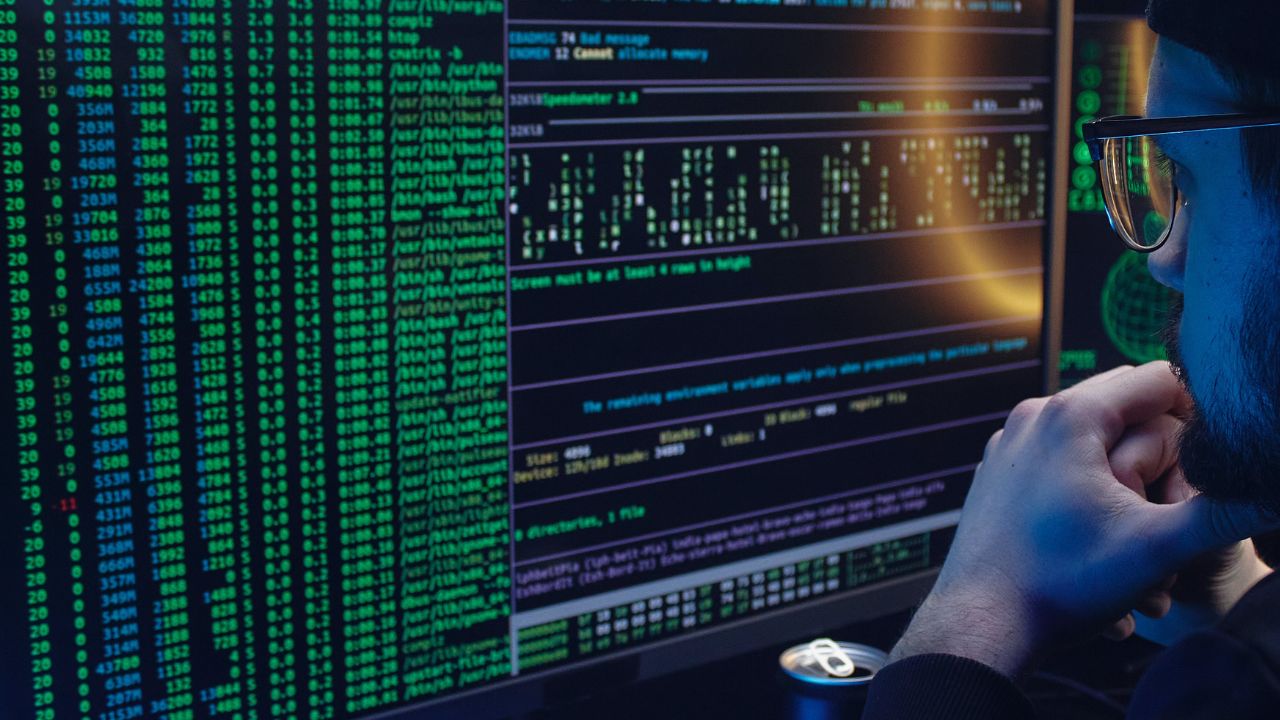With elections around the corner, people need to work harder to do their own research into who they want to vote for. That’s because, as we’ve seen in the previous election, technology and social media have made it easier to sway people in a certain direction. With the rise of AI technology in the form of deepfakes, as well as misinformation campaigns that can manipulate peoples’ emotions, don’t let yourself fall for them.
These three categories of cyber threats should be on the radar ahead of elections. Here’s what you need to know and how to keep yourself safe and thinking for yourself:
GET SECURITY ALERTS, EXPERT TIPS – SIGN UP FOR KURT’S NEWSLETTER – THE CYBERGUY REPORT HERE

1) Deepfakes and AI-driven misinformation
Though deepfakes aren’t new, their potential to distort our reality has made it very difficult to distinguish what’s real from what’s fake. Not only has deepfake technology itself gotten better, but the increasing accessibility of these AI technologies has made it easier to create and distribute deepfake videos and audio at a mass scale.
Why is this problematic in terms of elections? Well, these can imitate public figures to spread false information, disrupt voter opinions, and create confusion. Imagine seeing a political figure or celebrity you admire talking about a topic that really resonates with you, even though everything you may have already researched about this person contradicts with what they are saying. This has the power to convince voters who may have otherwise voted differently or were unsure about who to vote for, meaning that people are able to get influenced by something that is not even real.

HOW AI COULD MANIPULATE VOTERS AND UNDERMINE ELECTIONS, THREATENING DEMOCRACY
2) Social media manipulation
One of the ways in which deepfakes spread so quickly is because of social media platforms. Social media platforms have always been a major battleground for misinformation campaigns, and it’s getting harder to detect which posts are real and which aren’t. Bots and AI-generated content can quickly disseminate false information before content checkers on these platforms are able to take them down. This makes it harder for users to distinguish between real and fake news, especially when it might be coming from a trusted source within their network.

ASK ANY TECH QUESTION, AND GET KURT’S FREE CYBERGUY REPORT NEWSLETTER HERE
3) Hacking and cyberattacks
In addition to the above, cyberattacks have gotten much more sophisticated. Politicians, their families, and campaign staff are all targets for cyberattacks, just like anyone else. Attackers may not only steal sensitive information to release at strategically damaging times but simply exploit their victims by using deepfakes, AI, and social media. Long-term, undetected attacks could also compromise the security and integrity of the electoral process both in the short term and in the long term.

HOW TO KNOW IF YOUR COMPUTER GOT HACKED – WHAT TO DO NEXT
Tips to keep yourself safe from cyber threats during elections
All in all, voters have a lot to watch out for this voting season, on top of already needing to be vigilant in general. These threats don’t just have the ability to trick you in the context of the election but in general. Therefore, implementing these best practices for cyber security can keep you safe overall.
1) Verify information source
Use trusted news outlets: Rely on reputable news organizations for election information.
Cross-check facts: Validate news stories by checking multiple sources.
Be skeptical of sensational content: If something seems overly provocative or too shocking, it may be designed to manipulate emotions.
Don’t give your information over the phone: Phone spoofing and scam calls are prevalent around election time. For instance, someone could call pretending they are from your local representative’s office (even posing as such on caller ID) when it could just be a scammer. Don’t give them your information.
HOLLYWOOD HIJACKED: THE AI TAKEOVER OD TINSELTOWN’S FILMS TO FAKE OUT AMERICANS
2) Protect your online accounts
Enable 2FA: Two-factor authentication adds an extra layer of security to your account by asking you to verify your identity in more than one way.
Use strong, unique passwords: Avoid reusing passwords across different sites that are hard to guess. Consider using a password manager to generate and store complex passwords.
Monitor account activity: Regularly check for any unauthorized activity.
HOW TO STOP ANNOYING ROBOCALLS
3) Recognize and report deepfakes
Look for inconsistencies: Pay attention to unnatural facial movements or audio that don’t match the video.
Use verification tools: Tools like reverse image search can help verify the authenticity of images and videos.
Report suspicious content: Alert platform moderators or use reporting features on social media.
4) Secure your devices
Keep software updated: Ensure all devices have the latest security updates.
Avoid public Wi-Fi: Public Wi-Fi networks are convenient but notoriously insecure. Hackers can easily intercept data transmitted over these networks, putting your personal information at risk. Whenever possible, avoid accessing sensitive accounts or transmitting private data while connected to public Wi-Fi.
Use a virtual private network (VPN): If you need to access sensitive information on public networks, we recommend using a VPN. Also, consider using a VPN to protect against being tracked and to identify your potential location on websites that you visit. Many sites can read your IP address and, depending on their privacy settings, may display the city from which you are corresponding. A VPN will disguise your IP address to show an alternate location.
My top recommendation is ExpressVPN. It has a quick and easy setup, is available in 105 countries, and will not log your IP address, browsing history, traffic destination or metadata, or DNS queries.
Right now you can get 3 extra months FREE with a 12-month ExpressVPN plan. That’s just $6.67 per month, a savings of 49%! Try 30 days risk-free.
Don’t click on any links or attachments you don’t trust: It’s very easy for malware to slip through links that look legitimate, so be sure to verify the source and be wary of unexpected requests for sensitive information. Always approach unsolicited requests for your personal data with caution, even if they appear to come from known contacts or reputable organizations.
The best way to protect yourself from clicking malicious links that install malware that may get access to your private information is to have antivirus protection installed on all your devices. This can also alert you of any phishing emails or ransomware scams.
My top pick is TotalAV, and you can get a limited-time deal for CyberGuy readers: $19 your first year (80% off) for the TotalAV Antivirus Pro package.
Kurt’s key takeaways
This election season is going to open up a whole new can of cyber-threat worms, so to speak. If you’re unsure who to vote for or you’re on the fence about certain issues, it’s important to be aware of the threats that exist, from AI deep fakes to social media’s power. Keep your wits about yourself, and always cross-check information as best as you can.
What role do you believe social media platforms should play in safeguarding elections against cyber threats and misinformation? Let us know in the comments below.
FOR MORE OF MY TECH TIPS & SECURITY ALERTS, SUBSCRIBE TO MY FREE CYBERGUY REPORT NEWSLETTER HERE
Copyright 2024 CyberGuy.com. All rights reserved. CyberGuy.com articles and content may contain affiliate links that earn a commission when purchases are made.




1 comment
Paper ballots!!!!